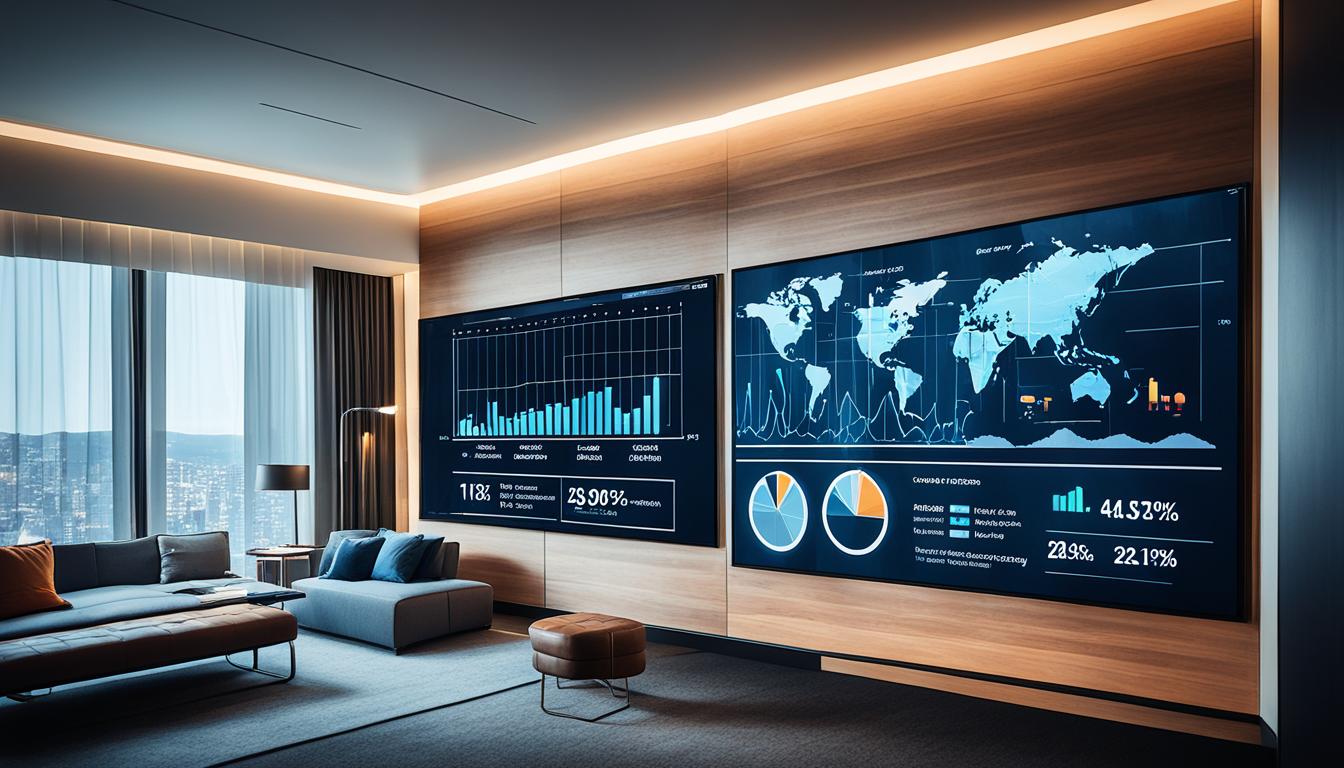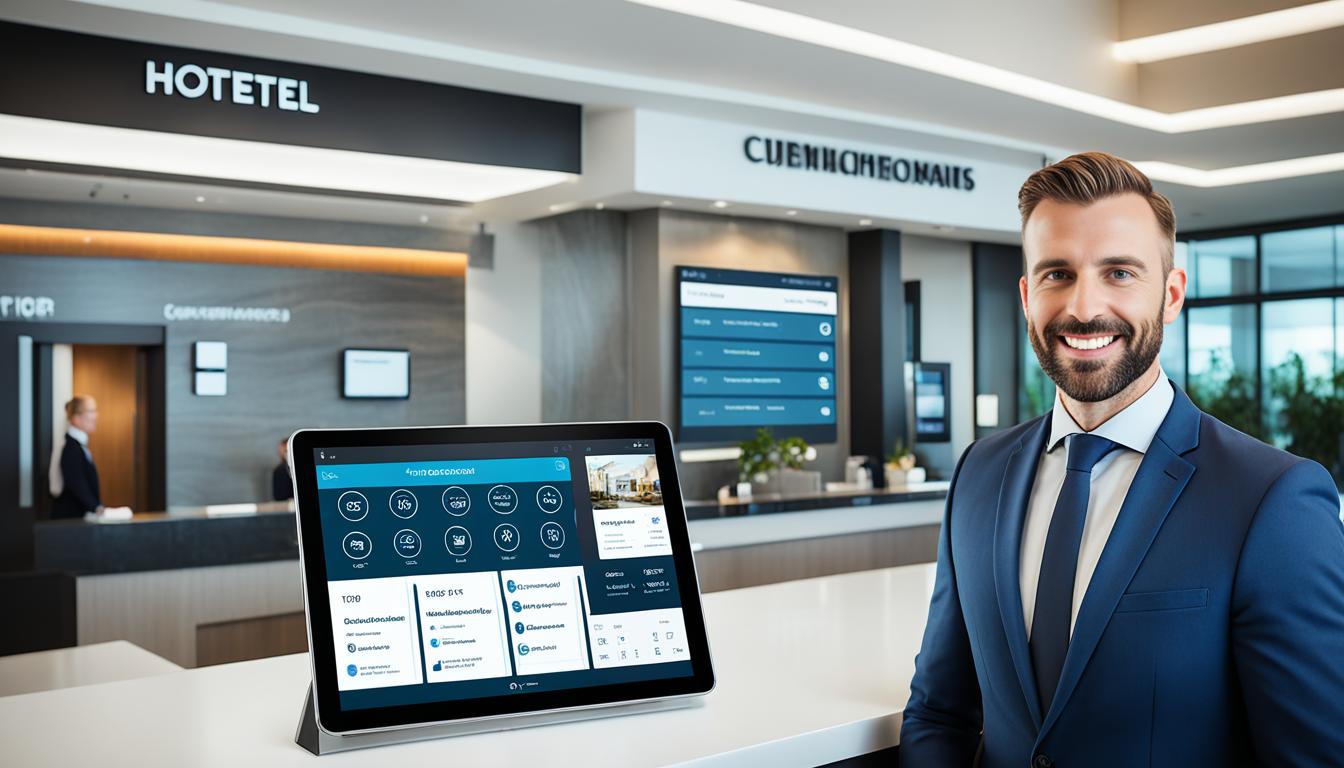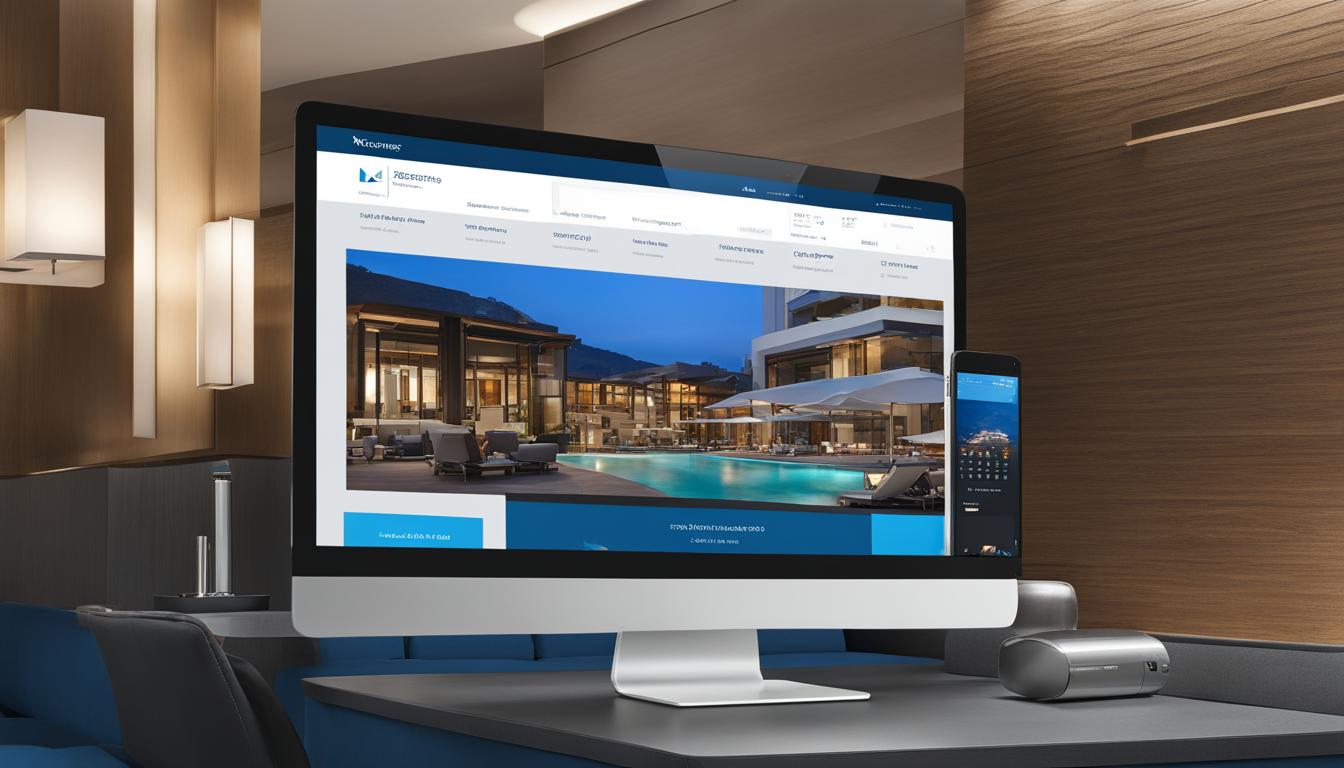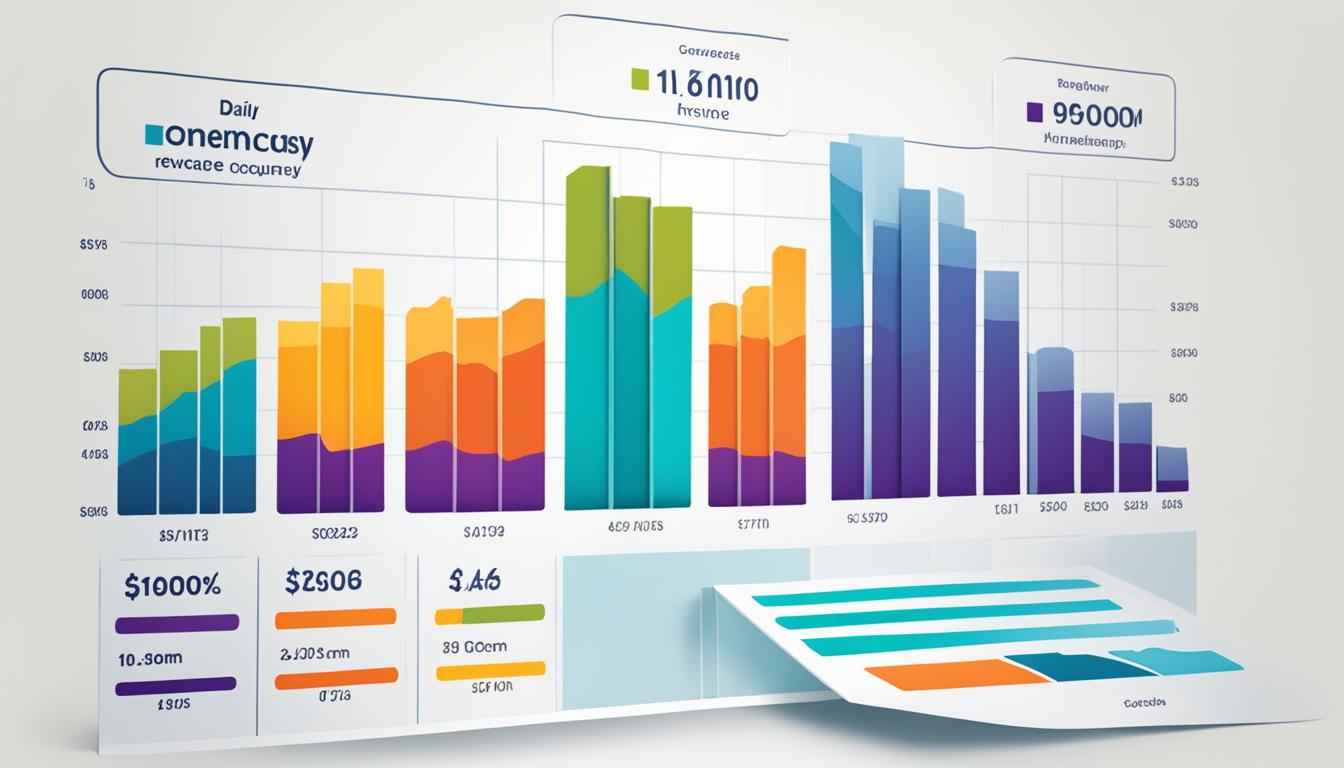Welcome to our article on data-driven decision making and analytics in the context of hotel marketing. In today’s highly competitive hospitality industry, it is essential for hotels to leverage the power of data to make informed decisions and drive their marketing strategies. By utilizing analytics, hotels can enhance their visibility, attract more guests, and ultimately increase their revenue.
Throughout this article, we will delve into the importance of data-driven decision making, explore how hotel website builder software can empower your online presence, discuss effective hotel website marketing strategies, uncover the secrets of hotel website SEO optimization, and highlight the role of analytics in boosting your hotel’s marketing success.
But before we dive into these topics, let’s take a moment to understand why data-driven decision making is crucial in today’s rapidly evolving digital landscape. By basing your decisions on solid data, you can gain valuable insights into consumer behavior, market trends, and the performance of your marketing efforts. This allows you to align your strategies with what truly resonates with your target audience and stay ahead of the competition.
So, if you’re ready to take your hotel marketing to the next level by embracing data-driven decision making and analytics, let’s get started. But first, take a moment to savor the image below, which perfectly captures the essence of our journey towards improved hotel marketing:
Understanding the Importance of Data-Driven Decision Making
Before diving into the specifics of hotel marketing analytics, it’s crucial to understand the significance of data-driven decision making. In today’s digital age, where information is abundant, businesses must harness the power of data to gain a competitive edge.
Data-driven decision making involves basing critical business choices on insights derived from careful analysis of data sets. It enables businesses to move away from subjective decision making and instead rely on empirical evidence.
One of the key reasons why data-driven decision making is important is its ability to minimize the element of guesswork. By utilizing data, businesses can make informed decisions that are backed by evidence and analysis. This reduces the likelihood of making costly mistakes and increases the likelihood of success.
Data-driven decision making also offers businesses the advantage of adaptability. In a fast-paced and ever-changing marketplace, being able to respond quickly and effectively to new trends and shifts in consumer behavior is crucial. By continuously analyzing data, businesses can identify emerging patterns and adjust their strategies accordingly.
Furthermore, data-driven decision making brings objectivity to decision making processes. It helps minimize biases and personal opinions, allowing businesses to make decisions based on facts rather than subjective viewpoints.
The importance of data-driven decision making in hotel marketing cannot be overstated. By leveraging hotel marketing analytics, businesses can gain valuable insights into customer preferences, behavior, and market trends. These insights enable hotels to tailor their marketing strategies to target specific customer segments, maximize their marketing budget, and increase their brand visibility.
By basing decisions on data, hotels can identify new opportunities for growth, improve guest experiences, optimize revenue streams, and stay ahead of the competition. In summary, data-driven decision making is a critical component of any successful hotel marketing strategy.
Utilizing Hotel Website Builder Software
When it comes to creating a professional and user-friendly website for your hotel, utilizing the right tools can make all the difference. That’s where hotel website builder software comes in. With the help of advanced software, such as the one provided by PlanetHMS, you can easily design and customize a website that truly represents your brand.
Hotel website builder software offers a range of features and benefits that can enhance your overall online presence. Whether you’re a small boutique hotel or a large chain, this software allows you to create stunning websites without the need for any coding or design experience. With intuitive drag-and-drop interfaces, customizable templates, and mobile-responsive designs, you can effortlessly build a website that captures the attention of potential guests.
Not only does hotel website builder software simplify the website creation process, but it also offers a variety of functionalities to streamline your operations. From integrated booking systems to online payment gateways, these software solutions provide seamless integration with your hotel management systems, making it easier for guests to book directly on your website.
Additionally, hotel website builder software ensures that your website is optimized for search engines, improving its visibility and attracting more organic traffic. By implementing search engine optimization (SEO) techniques, such as optimizing meta tags, creating keyword-rich content, and improving site speed, you can rank higher in search engine results pages and increase your chances of being discovered by potential guests.
With the right hotel website builder software, your website becomes a powerful tool that showcases your property, drives direct bookings, and enhances the overall guest experience. Take advantage of the features and benefits offered by hotel website builder software to stay ahead in the competitive hospitality industry.
Implementing Hotel Website Marketing Strategies
When it comes to promoting your hotel online, effective website marketing strategies are crucial. By employing the right techniques and tactics, you can attract more visitors to your hotel’s website and drive direct bookings. To boost your hotel’s online visibility and reach your target audience, consider implementing the following strategies:
1. Search Engine Optimization (SEO): Optimize your hotel website using relevant keywords, meta tags, and compelling content to improve its ranking on search engine results pages.
2. Content Marketing: Create informative and engaging content such as blog posts, articles, and videos that showcase your hotel’s unique offerings and attract potential guests.
3. Social Media Marketing: Utilize popular social media platforms to promote your hotel, engage with your audience, and build brand awareness.
4. Email Marketing: Develop a targeted email marketing campaign to nurture leads, share promotional offers, and keep your previous guests informed about upcoming deals or events.
5. Pay-Per-Click Advertising (PPC): Run targeted PPC campaigns on platforms like Google Ads to reach a wider audience and generate immediate visibility for your hotel.
6. Influencer Marketing: Collaborate with influencers in the travel and hospitality industry to promote your hotel and tap into their audience base.
By implementing these hotel website marketing strategies, you can enhance your hotel’s online presence, attract more visitors to your website, and ultimately increase your bookings and revenue.
Optimizing Hotel Website SEO
When it comes to increasing your hotel’s online visibility and attracting more guests, search engine optimization (SEO) is a crucial aspect to consider. By optimizing your hotel website for search engines, you can improve your organic rankings and increase the chances of potential guests finding your property in their search results.
So, how can you optimize your hotel website SEO? Here are some best practices, tips, and strategies to help you get started:
1. Keyword Research
Perform thorough keyword research to identify the relevant search terms potential guests are using to find hotels like yours. Incorporate these keywords strategically throughout your website content, including in page titles, headings, meta descriptions, and image alt tags.
2. High-Quality Content
Create high-quality, informative content that is relevant to your target audience. This can include blog posts, destination guides, and other useful resources. By providing valuable content, you can attract more organic traffic and establish your hotel as an authority in the industry.
3. Mobile-Friendly Design
Ensure that your hotel website is mobile-friendly and responsive. With more people using smartphones and tablets to browse the internet, it’s crucial to provide a seamless browsing experience for mobile users. This can also positively impact your search engine rankings.
4. Page Speed Optimization
Optimize your website’s loading speed to improve user experience and search engine rankings. Compress images, minify code, and utilize caching techniques to reduce page load times. A fast-loading website is more likely to rank higher in search results.
5. Local SEO
Implement local SEO strategies to target guests searching for accommodation in your specific location. Create and optimize your Google My Business listing, include location-specific keywords in your content, and encourage guest reviews to boost your local search visibility.
By following these SEO best practices and optimizing your hotel website, you can enhance your online presence, attract more organic traffic, and ultimately increase your bookings and revenue.
Harnessing the Power of Analytics in Hotel Marketing
Analytics tools play a critical role in driving success in hotel marketing. By leveraging these tools, hoteliers can gain valuable insights into their marketing efforts, enabling them to make data-driven decisions that lead to increased revenue and enhanced guest satisfaction.
With analytics, hotel marketers can track and monitor key metrics and data points that provide a comprehensive view of their marketing performance. From website traffic and booking conversions to customer engagement and ROI, analytics tools offer a wealth of information to inform marketing strategies.
One of the key benefits of analytics in hotel marketing is the ability to understand consumer behavior and preferences. By analyzing data, hoteliers can identify trends, patterns, and preferences that enable them to tailor their marketing efforts to target specific customer segments.
For example, analytics can reveal which marketing channels are most effective in driving bookings, allowing hoteliers to allocate their resources accordingly. By understanding the customer journey, marketers can optimize their campaigns, messaging, and offers to resonate with their target audience.
Furthermore, analytics enable hoteliers to measure the success of their marketing campaigns and initiatives. By tracking key performance indicators (KPIs), such as click-through rates, conversion rates, and average time on site, marketers can assess the effectiveness of their strategies and make data-driven adjustments to drive better results.
By harnessing the power of analytics, hoteliers can optimize their marketing efforts, maximize their return on investment, and stay ahead of the competition in the dynamic hospitality industry.
Conclusion
In today’s competitive landscape, data-driven decision making and analytics have emerged as essential tools for achieving hotel marketing success. By harnessing the power of analytics, utilizing hotel website builder software, implementing effective marketing strategies, and optimizing website SEO, hoteliers can significantly enhance their visibility and revenue.
Data-driven decision making empowers hoteliers to make informed choices based on insights derived from data analysis. By leveraging analytics tools, such as those offered by PlanetHMS, hotels can gain valuable insights into guest behavior, market trends, and competitor performance. These insights enable hoteliers to tailor their marketing strategies, drive revenue growth, and enhance guest satisfaction.
Furthermore, utilizing a hotel website builder software, like PlanetHMS, allows hoteliers to create professional and user-friendly websites. With a visually appealing and optimized website, hotels can capture the attention of potential guests, provide seamless booking experiences, and showcase their unique offerings. A well-designed website not only enhances the overall online presence but also establishes credibility and trust among potential customers.
Implementing effective hotel website marketing strategies is vital for attracting more visitors and driving direct bookings. From leveraging social media platforms, utilizing search engine marketing techniques, to crafting compelling content, hoteliers can reach their target audience, engage with potential guests, and increase direct bookings. By adopting a comprehensive approach to hotel website marketing, hotels can boost their online visibility and outperform competitors.
Lastly, optimizing hotel website SEO plays a pivotal role in improving organic rankings and increasing website traffic. By implementing SEO best practices, such as keyword optimization, mobile responsiveness, and user-friendly navigation, hotels can improve their search engine visibility and attract more organic traffic. A well-optimized website ensures that hotels are easily discoverable by potential guests, increasing the likelihood of direct bookings and revenue growth.
In conclusion, the integration of data-driven decision making, analytics, hotel website builder software, effective marketing strategies, and website SEO optimization is a winning formula for hotel marketing success. By leveraging these tools and tactics, hoteliers can gain a competitive edge, enhance their online presence, and drive revenue growth. To learn more about how PlanetHMS can help you achieve your hotel marketing goals, reach out to [email protected].







